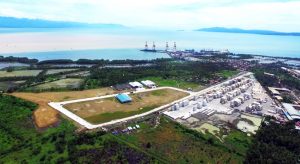FOREIGN INVESTORS are in the process of reviewing the locations of their Asian manufacturing bases, and their decisions will be critical for developing the Philippine export sector, Trade Secretary Alfredo E. Pascual said.
Mr. Pascual told reporters in chance remarks recently that the ongoing global review of supply chains “is a notion that we are capitalizing on, to attract investors that have production operations in China to locate alternative production operations in the Philippines. They’re already in Taiwan or Japan or Korea; we want them to consider operations here.”
“We will provide an alternative supply source for their components and inputs to their assembly operations. The idea for a country like the Philippines, to be able to build up a large export volume; (is to) target participation in the global value chains of vehicles, electric vehicles, appliances, and various types of products,” he added.
“We develop exports through FDI, not internally. Look at Vietnam, look at Thailand… The export products coming from our neighboring countries are produced by factories put up by foreign investors… It could be our country eventually, (that can serve) as the production base for our export market,” Mr. Pascual said.
The pandemic disruptions in China as well as the Russia-Ukraine war have roiled global supply chains, leading many manufacturers to reconsider their options in their choice of an Asian base of operations.
Mr. Pascual said foreign investors will help provide technology, capital, and new markets to the Philippines.
“The foreign invest(ors) we are trying to attract here… have a built-in market (and) already have the technology. It is a matter of setting up the factory here, employing our people… That’s the approach that I am trying to push for. We integrate trade, industry and investment,” Mr. Pascual said.
“How do we develop our Philippine-based industry? You need investors. Investment is not just finance, it is also the technology and management, and more importantly, market,” he added.
Mr. Pascual also said that competitive domestic businesses are critical.
“We need to build a domestic base, the bread-and-butter line domestically, to support our foray into the export market. We cannot jump straight to exports. You need to be able to develop the production capability, the quality, and improve the productivity so you can be competitive in pricing,” Mr. Pascual said.
The Philippine Statistics Authority (PSA) said in a preliminary estimate that exports rose 20% to $7.7 billion in October. The PSA is set to release November 2022 export data on Jan. 10. — Revin Mikhael D. Ochave
